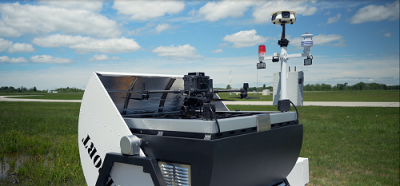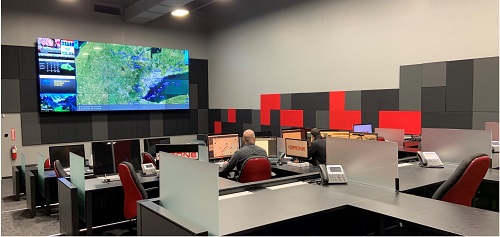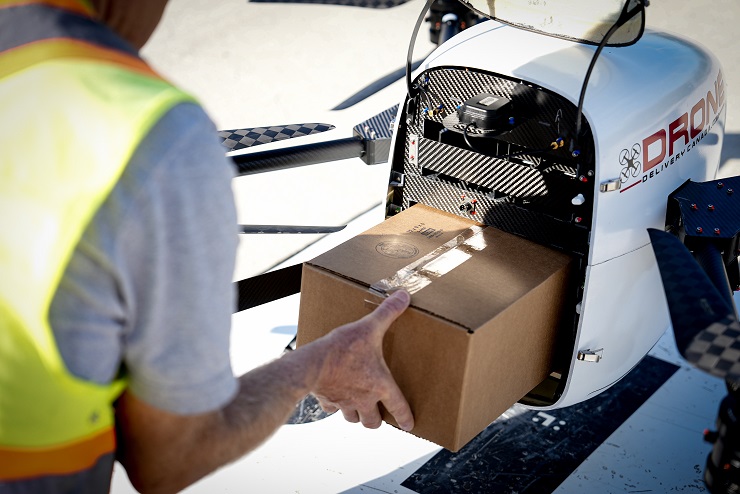“When I look at our collective resources, our knowledge when it comes to drones, and the talent in both organizations, I think we’ll be able to bring out the best of both worlds.”
Those are the words of Glen Lynch, Chief Executive Officer, President and Director of Volatus Aerospace, commenting on his company’s recent merger with Drone Delivery Canada (DDC). A statement announcing the deal explained how the partnership satisfies DCC’s interest in accelerating the commercialization of its technology as well as Volatus’ desire to expand their commercialization efforts across multiple verticals with remotely piloted operations and logistics.
According to the statement, “The combined company, with its shared decades of technology and aviation experience as well as strong financial and operating metrics, is expected to have a leading presence globally as a diversified technology and service leader to drive both short- and long-term growth opportunities in existing and new markets.” Moreover, the statement said, “the combined company will be able to achieve material cost synergies to support near-term profitability and enhance its margin profile as its revenue profile continues to grow.”
To learn more about the merger, Commercial UAV News spoke with Volatus Aerospace’s CEO Glen Lynch, as well as Steve Magirias, Chief Executive Officer of Drone Delivery Canada. We discussed the process that led to the deal, how the strengths of both companies could create new opportunities for growth and innovation, and what this merger says about the current state of the commercial drone sector.
Commercial UAV News: How did the deal come together? What was the process?
Lynch: Steve's original approach to me was, “I'm running this company with all of this great, mature technology and strong engineering, but we're in ‘Early Stage’ revenue, and we need to accelerate that.” And they looked at us and said, “Well, you guys excel at growing your revenue, but you don't have a lot of your own technology. Is there something we could do together?” And that's what sparked the conversation.
Magirias: I joined DDC almost two and a half years ago, and I quickly realized that, in the drone delivery space, we were a bit of a ways away before we could scale up. Technology was our strength, but commercialization wasn't. So, I looked at it from a 50,000-foot level—Here's a company, DDC, that has a lot of technology and IP and very limited commercial activity and sales. Then I looked at Volatus, and they had this huge commercial engine. So, I thought, “Let's have a conversation and see where it takes us.”
Commercial UAV News: In announcing the merger, Glen, you said that the deal was going to have “a significant impact right out of the gate.” What did you mean by that?
 Lynch: We’re already doing things together. For example, Volatus developed a remote nesting station initially designed for the oil and gas industry. It was intended to be all weather, could be put anywhere and operated from anywhere on the planet for remote inspections. In this particular case, we put the station in Northern Saskatchewan, but when it came time to start flying drones, we didn't have a remote operation center. So, we’ve relocated the station to a remote testing facility that's owned by DDC. It’s been located to the same area where they do continuous reliability testing on their existing product. We'll train their operation control center operators to operate our drone. So, there's a skill that Drone Delivery Canada has, an expertise that dovetails right into this product.
Lynch: We’re already doing things together. For example, Volatus developed a remote nesting station initially designed for the oil and gas industry. It was intended to be all weather, could be put anywhere and operated from anywhere on the planet for remote inspections. In this particular case, we put the station in Northern Saskatchewan, but when it came time to start flying drones, we didn't have a remote operation center. So, we’ve relocated the station to a remote testing facility that's owned by DDC. It’s been located to the same area where they do continuous reliability testing on their existing product. We'll train their operation control center operators to operate our drone. So, there's a skill that Drone Delivery Canada has, an expertise that dovetails right into this product.
Commercial UAV News: You just described one way that Drone Delivery Canada is helping Volatus operations. In what ways can Volatus help Drone Delivery Canada?
Lynch: Drone Delivery Canada has the ability to operate drones anywhere in the world, but as their name says, they are focused on Canada. At Volatus, we've got 28 salespeople and four marketing people that are distributed all over Canada, the United States, and the UK, as well as covering Europe, Middle Eastern, and Africa. So that immediately opens up other opportunities that can be served by Drone Delivery Canada technology. I would also add that we're a certified aircraft operator—we run piloted airplanes and helicopters on a daily basis—and we're very plugged into developing technologies.
Commercial UAV News: Steve, can you explain how the merger will help you achieve the goals you set at DCC?
 Magirias: We had always talked internally about looking to do a pivot with our drones. There was talk of looking at other applications for our technology but you need capital and time to do that. So, this deal is obviously a more expeditious way to accomplish those goals. I think that leveraging our collective resources will help us get where we want to be. Just look at the talent in both organizations. I think combining the two will help us really cross pollinate and be able to expand that knowledge to other areas, with a goal of making the entire entity as strong as possible.
Magirias: We had always talked internally about looking to do a pivot with our drones. There was talk of looking at other applications for our technology but you need capital and time to do that. So, this deal is obviously a more expeditious way to accomplish those goals. I think that leveraging our collective resources will help us get where we want to be. Just look at the talent in both organizations. I think combining the two will help us really cross pollinate and be able to expand that knowledge to other areas, with a goal of making the entire entity as strong as possible.
Commercial UAV News: What does a merger like this say about the state of the commercial UAV industry? Is it a sign of maturity?
Lynch: I think that's true. What's happening now is the industry is maturing in technologies—and DDC is an example of that. For example, they've got a drone now that's flying with medical isotopes over a large urban area, flying over people in Canada. It’s a sophisticated operation: When they load a box inside of the drone, the drone actually communicates with the remote operations center, informing the pilot whether the aircraft is within weight and balance limits for takeoff because of its built-in internal scale system. I'm super impressed with the level of detail and planning that went into their technological and operational ecosystem. This is just one example of what's happening now as the industry is maturing.
Also, it's becoming increasingly challenging for some small businesses to adapt to the changes required for growth. We're getting bigger demands from larger companies but the small business industry is highly fragmented around the world and are struggling to scale. We're at a point right now where a lot of small companies and startups are facing the demands of the market, the maturity of the technologies, and, of course, the difficulty of raising capital. It's a critical and essential time for consolidation. I would say we're at the bow wave right now of the beginning stages of real income consolidation.
Commercial UAV News: Some people might argue that while consolidation might be necessary in an industry—and be a sign of maturity—it can lead to a decrease in innovation and experimentation. How will you guard against that?
Magirias: I think the key is to understand and find those areas that will make the difference from an IP perspective, because it always comes down to differentiation. Where does that differentiation come from? For Drone Delivery Canada, it always came from that IP and that technological advancement. So, I think the key will be to continue with that, but with an eye to getting more revenue. We need to get to profitable revenue, because you can suck up revenue and work on projects that are loss leaders, but at some point, that paradigm needs to shift. For us, it's really focusing on profitability. We can develop products and technology, but if it's not going to solve customers’ needs or create value, then then it's just a science project.















Comments